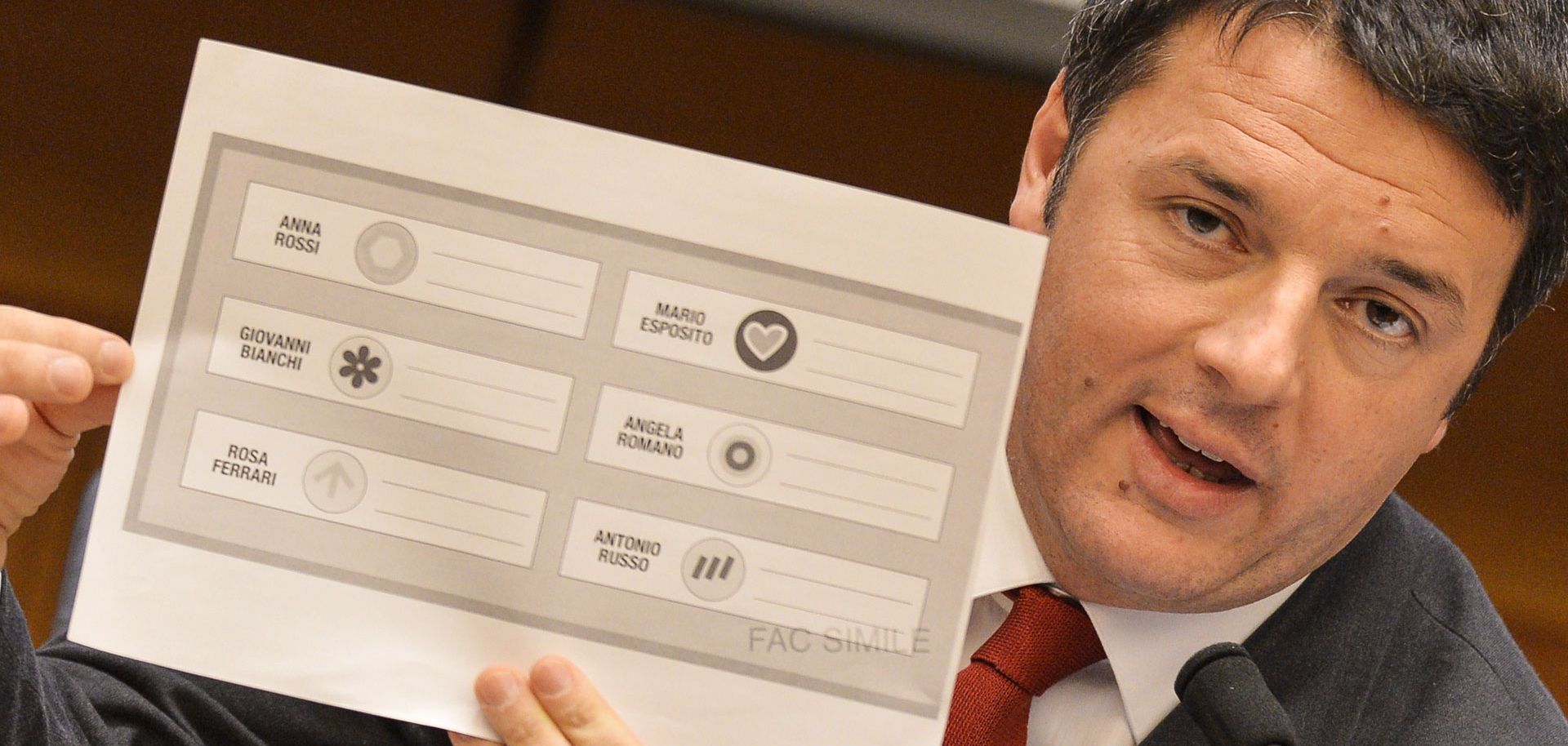ASSESSMENTS
How Electoral Reform Will Affect Italian Politics
May 6, 2015 | 09:16 GMT

(ANDREAS SOLARO/AFP/Getty Images)
Summary
The lower house of the Italian parliament adopted a controversial electoral law May 4, in the hopes of making the government more effective. Called Italicum, the law will concentrate more power in the hands of future Italian governments by making it easier for a party to win a majority in the lower house. After a referendum in early 2016, a constitutional reform is expected to complement Italicum. In the short run, the current government will change the Italian political system to give more power to the next government.
Meanwhile, Rome will postpone reforms that would help revitalize the country's economy until the next elections, as the ruling Democratic Party will want to remain popular among voters. Prime Minister Matteo Renzi will probably call for early elections after Italicum enters into force, hoping to get a clear mandate in order to better implement his reformist agenda. However, the Constitutional Court will likely challenge the legality of the electoral law. The legal process would take several years, but the final ruling will create a new stage for political instability in Rome.
Subscribe Now
SubscribeAlready have an account?
